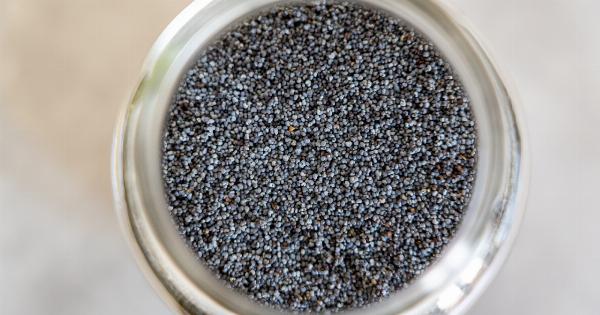Flaxseed or linseed is touted as one of the healthiest foods on the planet. It is a nutritious seed that is native to the Middle East, but it is now consumed worldwide.
The heart-healthy seed is rich in antioxidants, fiber, protein, and omega-3 fatty acids.
What are Flaxseeds and their Nutritional Composition?
Flaxseeds are small, golden or brown-colored seeds that come from the flax plant. They are a rich source of lignans, plant compounds that have estrogen-like effects and antioxidant properties.
Flaxseeds are also rich in alpha-linolenic acid (ALA), a type of omega-3 fatty acid that is essential for health.
One tablespoon (10 grams) of whole flaxseeds contains:.
- Calories: 55
- Protein: 1.9 grams
- Fiber: 2.8 grams
- Total Fat: 4.3 grams
- Saturated Fat: 0.4 grams
- Monounsaturated Fat: 0.8 grams
- Polyunsaturated Fat: 3 grams
- Omega-3 fatty acids: 2.5 grams
- Vitamin B1: 8% of the RDI
- Vitamin B6: 2% of the RDI
- Folate: 2% of the RDI
- Calcium: 2% of the RDI
- Iron: 2% of the RDI
- Magnesium: 7% of the RDI
- Phosphorus: 4% of the RDI
- Potassium: 2% of the RDI
Health Benefits of Flaxseeds
Flaxseeds are known for their numerous health benefits. Below are some of the health benefits of flaxseeds:.
: Reduces the risk of heart disease
Flaxseeds are a rich source of alpha-linolenic acid (ALA), an essential omega-3 fatty acid that has been shown to reduce the risk of heart disease in several studies.
The lignans in flaxseeds also help to reduce the risk of heart disease by reducing inflammation and blood pressure.
: May help to reduce the risk of cancer
Flaxseeds contain lignans that have been shown to reduce the risk of breast, prostate, and colon cancer. The lignans in flaxseeds are known to have anti-cancer properties that help to block the growth and spread of cancer cells in the body.
: Improves digestive health
Flaxseeds are rich in fiber, which helps to promote digestive health. The fiber in flaxseeds promotes regular bowel movements, reduces constipation, and helps to reduce the risk of colon cancer.
: May help to reduce inflammation
Flaxseeds are rich in alpha-linolenic acid (ALA), which has been shown to have anti-inflammatory properties.
The omega-3 fatty acids in flaxseeds help to reduce inflammation in the body, which can help to reduce the risk of chronic diseases, such as arthritis, asthma, and heart disease.
: May help to reduce blood sugar levels
Flaxseeds contain soluble fiber, which slows down the absorption of carbohydrates in the body, helping to reduce blood sugar levels.
Several studies have shown that adding flaxseeds to the diet can help to improve insulin sensitivity and reduce the risk of diabetes.
: May help to reduce the risk of osteoporosis
Flaxseeds are a rich source of lignans that have been shown to improve bone health. The lignans in flaxseeds help to reduce the risk of osteoporosis in post-menopausal women by increasing bone density.
How to Incorporate Flaxseeds into your Diet?
There are several ways to incorporate flaxseeds into your diet. Below are some ways:.
: Add them to your breakfast cereal
You can add ground flaxseeds to your breakfast cereal to boost its nutritional content. Simply grind the flaxseeds in a coffee grinder or blender and sprinkle them on your cereal.
: Mix them with yogurt
You can mix ground flaxseeds with yogurt to add flavor and texture. You can also sweeten the mixture with honey or maple syrup to make it more appealing.
: Bake them into a muffin recipe
You can also add flaxseeds to a muffin recipe to add flavor and texture. Simply grind the flaxseeds in a coffee grinder or blender and add them to the batter before baking.
: Use them as a substitute for eggs
Ground flaxseeds can be used as an egg substitute in vegan recipes. Simply mix 1 tablespoon of ground flaxseeds with 3 tablespoons of water and let it sit for a few minutes before adding it to the recipe.
: Add them to your smoothie
You can add ground flaxseeds to your smoothie to make it more nutritious. Simply blend the flaxseeds into your smoothie for added nutrition.
Side Effects of Flaxseeds
While flaxseeds are generally safe, consuming large amounts of them can cause certain side effects. Below are some of the side effects of flaxseeds:.
: Gastrointestinal distress
Consuming large amounts of flaxseeds can cause gastrointestinal distress, such as bloating, gas, and diarrhea, especially if they are consumed without enough water.
: May interfere with nutrient absorption
Eating large amounts of flaxseeds may interfere with the absorption of certain nutrients, such as magnesium and calcium.
: Allergic reactions
People who are allergic to flaxseeds may experience allergic reactions if they consume them. Symptoms of flaxseed allergy include hives, itching, and difficulty breathing.
: May cause hormonal imbalance
Consuming large amounts of flaxseeds may cause hormonal imbalances in women, especially if they are prone to hormonal imbalances. This is because flaxseeds contain lignans, which have estrogen-like effects in the body.
Conclusion
Flaxseeds are a nutritious and heart-healthy food that is rich in antioxidants, fiber, protein, and omega-3 fatty acids.
They have numerous health benefits, including reducing the risk of heart disease, cancer, and osteoporosis, improving digestive health, reducing inflammation, and helping to reduce blood sugar levels. Flaxseeds can be easily incorporated into your diet by adding them to your breakfast cereal, mixing them with yogurt, baking them into muffins, using them as a substitute for eggs, or adding them to your smoothie.




























